The US's consideration of recognizing Vietnam's market economy status will greatly change Vietnam's role and position in the international arena, removing many obstacles and barriers in trade cooperation relations as well as attracting investment.
On May 8, the US Department of Commerce held a hearing to consider the recognition of Vietnam's market economy status. At the hearing, the Vietnamese side clearly presented arguments, information, and data affirming that Vietnam's economy fully meets the six criteria of market economy status according to US law. At the same time, it emphasized that Vietnam's economy has developed even more rapidly than many economies that have been recognized by the US as a market economy in the past decade.
Currently, the US still considers Vietnam to be among the countries with non-market economies in trade defense cases. This has a huge impact on Vietnamese enterprises, especially the disadvantages in anti-dumping investigations. Meanwhile, up to now, 72 countries have recognized Vietnam as a market economy, including major economies such as the UK, Canada, Australia, Japan, and South Korea. Vietnam has also participated in 16 bilateral and multilateral Free Trade Agreements (FTAs) with more than 60 trading partners in the world .
Vietnam's economy fully meets the six criteria of market economy status according to US law.
Commenting on the US review of Vietnam's market economy status, economist Le Quoc Phuong, former Deputy Director of the Center for Industry and Trade ( Ministry of Industry and Trade ), said that the US review of the dossier to recognize Vietnam's market economy status is a new step to deepen the comprehensive strategic partnership between the two countries. This will greatly change Vietnam's role and position in the international arena, far different from when it was considered a non-market economy, causing many obstacles and barriers in trade cooperation relations as well as attracting investment.
Mr. Phuong acknowledged that the reason this process is quite slow and somewhat cautious is because the Vietnamese economy is shifting from a planned, centralized, bureaucratic economy to a market economy, and currently in the market economy there is still the direction, intervention and support of the State.
“This is also an inevitable development process when Vietnam’s economy is growing under increasingly complex external influences. However, the role of the state in the market economy is very necessary, leading the market to develop in a positive direction and overcoming the limitations caused by the market economy, thereby developing the economy in the best way,” said economic expert Le Quoc Phuong.
In fact, after nearly 30 years of renovation, the Vietnamese economy is operating fully and synchronously according to the laws of the market economy, in accordance with each stage of the country's development as well as the process of international integration. The Vietnamese economy has the participation of many components, in which the state economy plays a leading role, the private economy is an important driving force. The subjects of all economic components are equal, cooperate and compete according to the law.
Therefore, when the US recognizes Vietnam's market economy status, Vietnam will have more conditions to prove itself and face more advantages in resolving trade disputes, because countries without market economy status are often susceptible to anti-dumping taxes on exported products.
From the practice of researching trade activities, Mr. Phuong said that if a trading partner is not recognized as having a market economy, the country importing goods from this partner country can use an alternative tool to decide whether imported goods are sold at unfairly low prices or not, then can calculate the scope of anti-dumping duties on the products, through the use of its own methodologies, without using data from the exporting country.
"The US recognition of a market economy will be especially important for Vietnam in the process of participating in global value chains, improving labor productivity and escaping the middle-income trap," Mr. Phuong affirmed, but also noted that when recognized as having a market economy, Vietnam needs to continue to promote State administrative reform and legal reform, ensuring that the State is constantly strong and effective to effectively resolve socio-economic development tasks, practice democracy, maintain independence, autonomy and firmly integrate into international life.
The US's consideration of upgrading Vietnam to a market economy status is of great significance to Vietnam in the comprehensive strategic partnership. This is the view of economic expert, Associate Professor, Dr. Dinh Trong Thinh, who assessed that this process will open up many new opportunities for Vietnam in investment and trade cooperation with many other countries.
Economic sectors in Vietnam operate equally, cooperate and compete according to the law.
In particular, with its great role and influence, when the US recognized Vietnam as a market economy, it created a new perspective on Vietnam in the eyes of international organizations as well as potential partners of Vietnam. From there, it created many great opportunities in attracting investment, expanding import and export markets with many great preferential policies.
“The US and many trade partners recognize that Vietnam has a market economy that opens up many investment and trade opportunities, specifically through Vietnam's ability to access many new generation FTAs. These agreements will help the Vietnamese economy attract more foreign direct investment (FDI) and boost economic growth. As a market economy recognized by the US and the world, Vietnam will diversify its economic activities and improve its competitiveness with the vision of building a growth model with higher productivity,” Associate Professor, Dr. Dinh Trong Thinh commented.
However, Associate Professor Dr. Dinh Trong Thinh also said that to truly have a market economy and maintain high growth in the next development stage, the Government must continue to promote economic restructuring, transforming labor-intensive industries with low added value into high value-added and high-tech manufacturing industries.
According to Nguyen Quynh/VOV.VN
Source





![[Photo] Conference of the Government Party Committee Standing Committee and the National Assembly Party Committee Standing Committee on the 10th Session, 15th National Assembly](https://vphoto.vietnam.vn/thumb/1200x675/vietnam/resource/IMAGE/2025/10/15/1760543205375_dsc-7128-jpg.webp)
![[Photo] Many dykes in Bac Ninh were eroded after the circulation of storm No. 11](https://vphoto.vietnam.vn/thumb/1200x675/vietnam/resource/IMAGE/2025/10/15/1760537802647_1-7384-jpg.webp)
![[Photo] The 18th Hanoi Party Congress held a preparatory session.](https://vphoto.vietnam.vn/thumb/1200x675/vietnam/resource/IMAGE/2025/10/15/1760521600666_ndo_br_img-0801-jpg.webp)


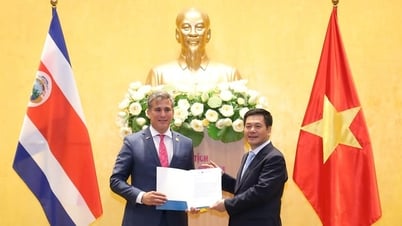





















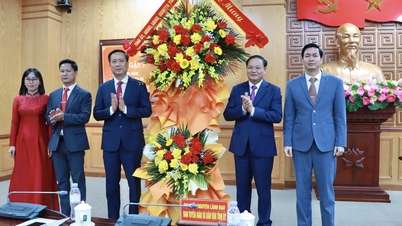
















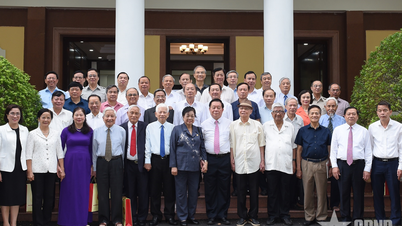






















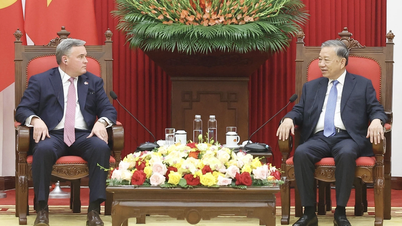







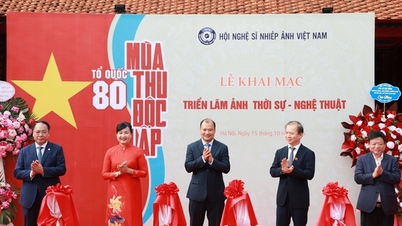












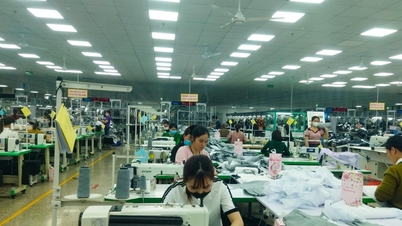

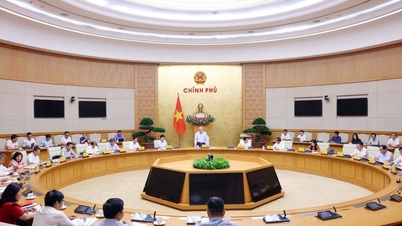
















Comment (0)